Last Updated on February 10, 2020 by Lisa Vargas
When preparing for disasters, water storage should be at the top of your list. And with water storage comes lots of questions that should be addressed upfront. When I first started in my prepping journey I knew that water storage was on the top of my list.
I’m always learning about it and getting more educated every day. But as I continued to learn I kept seeing the same questions keep popping up about water storage so I thought I would write a post about the 10 most common questions when it comes to long term water storage.
10 Most Common Questions Surrounding long-term Water Storage
As mentioned above, prepping is a long-term personal journey for everyone. Some people are going to start differently than others. Some people may place more emphasis on tools and gear, rather than understanding the skills necessary to use them.
But one thing is for sure, if you don’t have enough food and water stored, you aren’t going to last very long after the SHTF.
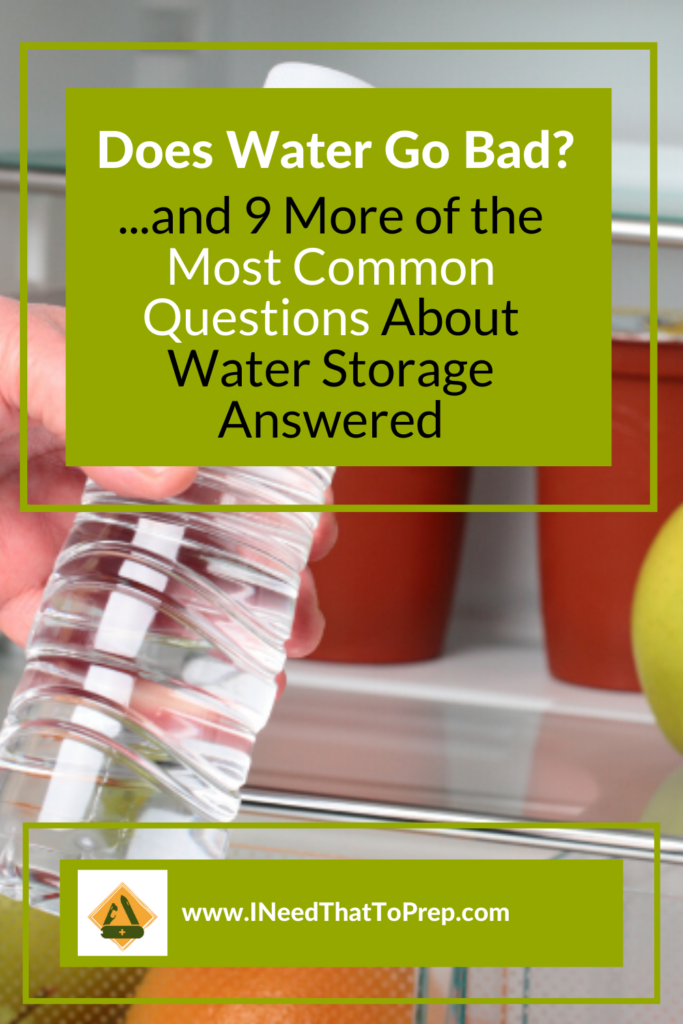
Below you will find the 10 most common questions when it comes to long-term water storage and the answers to them. My hope is that this post helps you when you start thinking about your long-term water storage supplies.
Does Water Expire?
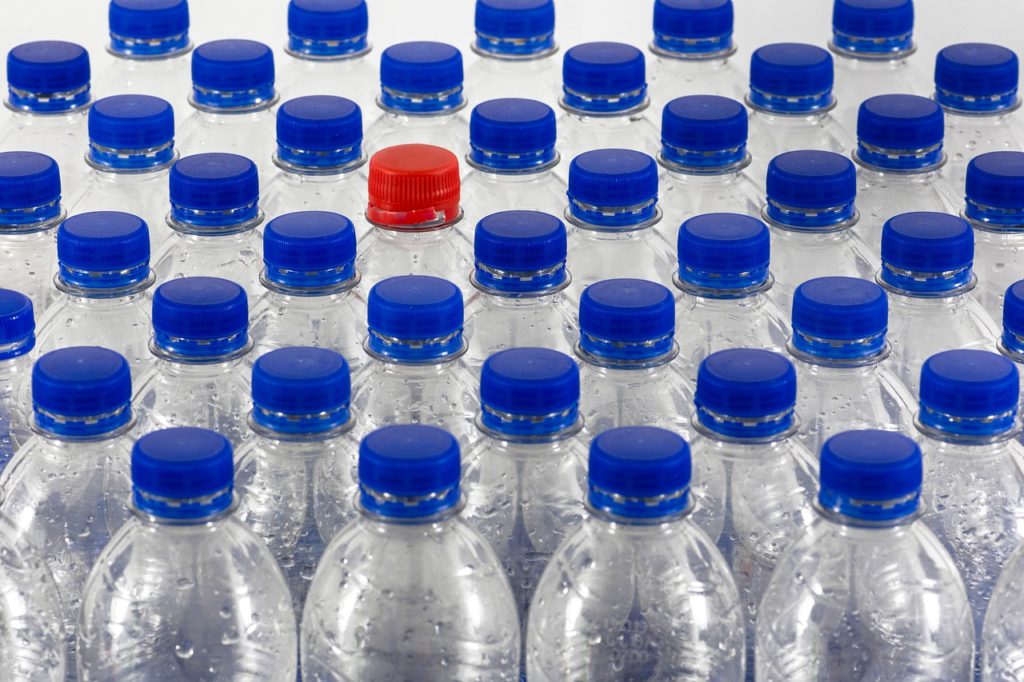
The short answer to whether or not water expires is NO.
You may have noticed that water bottles have an expiration date on them. The FDA considers water to be safe and drinkable “indefinitely” and does not require expiration dates on them.
The main reason for this is government bureaucracy more than anything and it benefits the manufacturer because it makes you think you need to drink the water by the expiration date so that you will feel safer buying more.
In reality, the placement of expiration dates on water bottles is determined by the manufacturer. It first started in the state of New Jersey when they placed a law that required all bottled water to have expiration dates. So instead of making a separate batch just for New Jersey, the manufacturers decided just to put the expiration dates on all of the bottles they produced.
The FDA considers water to be safe and drinkable “indefinitely” and does not require expiration dates on the bottles. What is most important is how you store your water bottles. This is the biggest issue when drinking water past the expiration date if there is one.
You need to be more concerned with the plastic water bottle when storing because after a while it will start leaching chemicals into the water and this is when the water can get contaminated. Believe it or not, there have been cases of contaminated commercial bottled water in the past due to manufacturer mishandling.
But when it comes to long-term water storage with preppers, which is usually done in larger water storage containers such as 5-gallon or 55-gallon containers, does the same apply?
When it comes to storing water, the biggest problems you will need to worry about are contamination, not whether or not your water will go bad. If commercial manufacturers are at risk, just think of someone like yourself who may not have a lot of experience with storing water.
Water will essentially stay forever. It’s the container where you can run into problems. You need to always make sure you store your plastic water bottles in a cool, dark place and keep them away from any household chemicals.
You will also need to learn to rotate your water for freshness, which we will talk about below.
Does Water Expire After Opening?
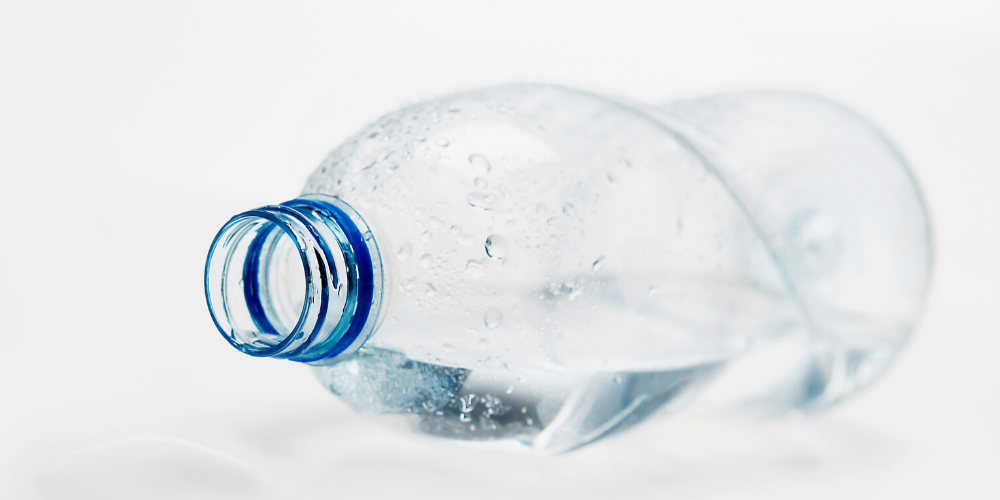
Once you open a bottle of water or any container for that matter, it really depends on the storage conditions such as light and temperature as to how long it will last.
Even though you’ve learned that water never “expires” or goes “bad”, EatByDate.com posts a chart that says opened water is best to drink 3-5 days after opening.
I don’t know about you, but I’ve drunk water well into 2 weeks after I opened it and I’m still alive and breathing. So I wouldn’t worry too much about opened water going bad.
Does Bottled Water Go Bad In Heat?

Have you ever left a bottle of water in the backseat of your car in the heat of the summer for a period of months and wondered if it’s ok to drink? I know I have and I’ve always thrown out that bottle just to be safe.
YES. Bottled water does get unsafe to drink because chemicals can leach into the water from the plastic. This is always the biggest concern when drinking out of bottled water. Not to mention if you leave your bottled water in the car and the sunlight hits it just right, it could light your car on fire!
As you can see in the video to the left, if you leave a water bottle in your car on the seat at just the right angle, it can start your seat on fire and ultimately your car!
Ultimately, heat and light are the two worst enemies that will endanger any water supply quickly. Contamination of water is always a factor and you need to strive to avoid it at all costs.
How Long Does It Take For Water To Expire?

As mentioned above, water does not expire. It can lose its freshness over time, but it can store indefinitely if you keep it properly under the right conditions. Usually, the manufacturers will indicate a shelf life somewhere between 1-2 years.
This might be a good time to bring up water rotation. If you are planning on storing your water for survival in 55-gallon barrels, you will want to rotate your water to keep it fresh about once per year.
Can You Drink Old Water?

YES. You can drink old water as long as you’ve been storing it properly. If you leave a glass of water out on the bed stand for more than 12 hours, it even starts to taste funny. But this is a little different than bottled water that is sealed.
It also depends on what the definition of “old” is. Manufacturers usually put a shelf-life on water bottles anywhere between 1-2 years. You just need to be smart and rotate your water bottle storage every one to two years.
If you are storing larger quantities of water in your garage in 5-gallon or 55-gallon drums, you will still have to rotate the water and make sure it’s been treated and stored in a cool, dry place.
In reality, you shouldn’t have any “old” water laying around that’s more than 1-2 years old if you are doing your water storage prepping correctly.
What Is The Best Container To Store Water In?
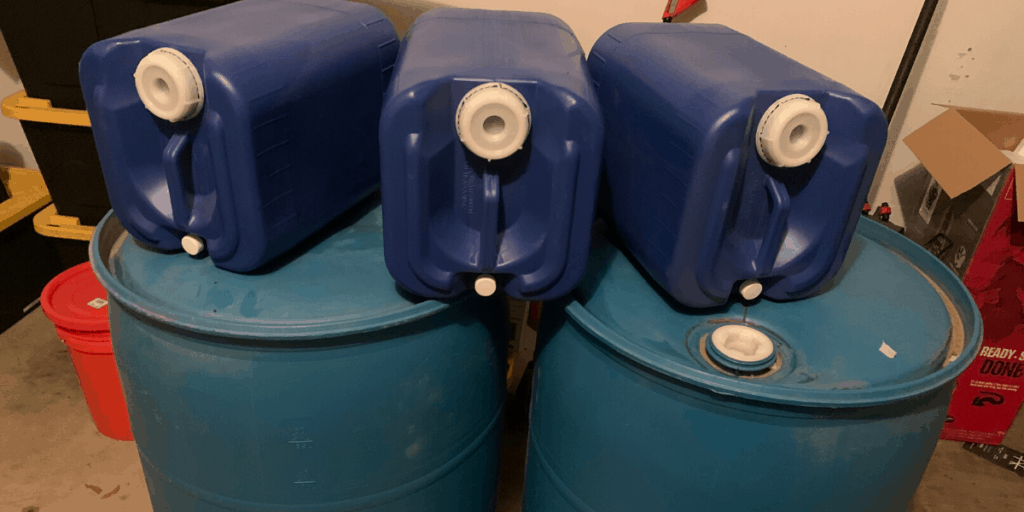
When it comes to long term water storage containers, you will need to always go with food-safe containers that are either marked with the following label on the bottom:
- #1 PETE (polyethylene terephthalate)
- #2 HDPE (high-density polyethylene). Make sure any #2 HDPE container is rated Food Safe.
- #4 LDPE (low-density polyethylene)
- #5 PP (polypropylene)
There are several different long-term water storage containers you can use for emergency water storage. Determine how long you plan to store your water because this will determine how big of a container you need and how many.
Make sure to never use food-grade plastic containers that have held anything in them that you wouldn’t eat yourself. They should brand new if possible, especially when storing water in 55-gallon barrels, and you need to make sure you clean them before you fill with water.
What Causes Water To Taste Bad?

Water should be tasteless, odorless, and free of color. If any of these three elements are off, then you might have some issues. Once water is stored for a greater length of time, even if it is potable, it might have a strange taste. That has to do with the fact that, over time, water loses the oxygen particles in it – meaning that it goes flat.
There are several things that can cause water to taste bad including chemicals that are used to treat your drinking water, environmental contaminants, or even metals from old piping.
But as a prepper, you are more than likely storing your water in either 5-gallon plastic containers or 55-gallon barrels so you shouldn’t run into these “typical” problems. Your water might taste “stale”, but it hasn’t gone bad. You can avoid your water going stale simply by rotating it out every year.
According to an article by The Water Doctors, some of the culprits behind bad tasting water can be:
- Hydrogen Sulfide (that’s the rotten egg smell that you are familiar with)
- Dissolved solids (these cause earthy, musty, and woodsy smells)
- Chlorine (typically used in municipal water treatment)
- Mercury, Lead, and Arsenic (these can seep into our water and cause a metallic flavor)
When it comes to odors, smells can be tricky as the explanation might vary from person to person. Such terms as earthy, musty, moldy, or foul can all be used to describe the various smells associated with water.
As a prepper, you should be able to stop this from happening by following the proper long-term water storage directions as discussed in the article I wrote titled How Do You Store Water Long Term?
In the end, most poor tasting water is typically harmless, unless it has a metallic taste, in which this is usually caused by lead. Your long term water storage should be rotated yearly and you can avoid most issues.
How Does Water Contamination Occur?
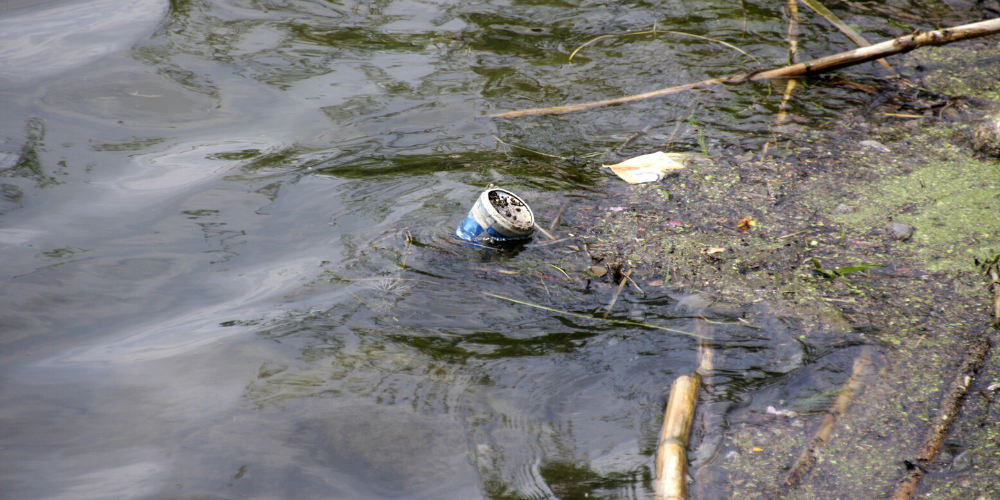
Approximately 13% of people in the United States depend on well water for their everyday needs. If you’re one of those people with a well on your property, you know how important it is to keep your water safe and have it properly tested for possible contaminants.
But for the rest of us who live in town, we rely on the city to clean our water. But to answer the question of how water can get contaminated, in general, here’s what the biggest culprits to water contamination:
- Animal or human feces
- Nitrates used in fertilizers
- Various minerals like mercury or lead
There are many other ways that water can become polluted, but since we are taking water contamination in a prepping context, there are a few ways the contamination can occur.
Firstly, if you don’t properly seal and tighten the bunghole at the top of the 55-gallon water barrels, you allow the chance for contaminants from the air.
Secondly, if you don’t treat your water properly with chlorine or water preserve concentrate, you might also run into a problem.
One of the best solutions to this problem is to use the Sagan Life Aquadrum Water Purification System. You can attach it right to the top of the water barrel and then purify the water directly out of the 55-gallon drum! It’s an awesome piece of equipment and makes things super safe and easy.
How Can You Tell If Your Water Is Still Good?
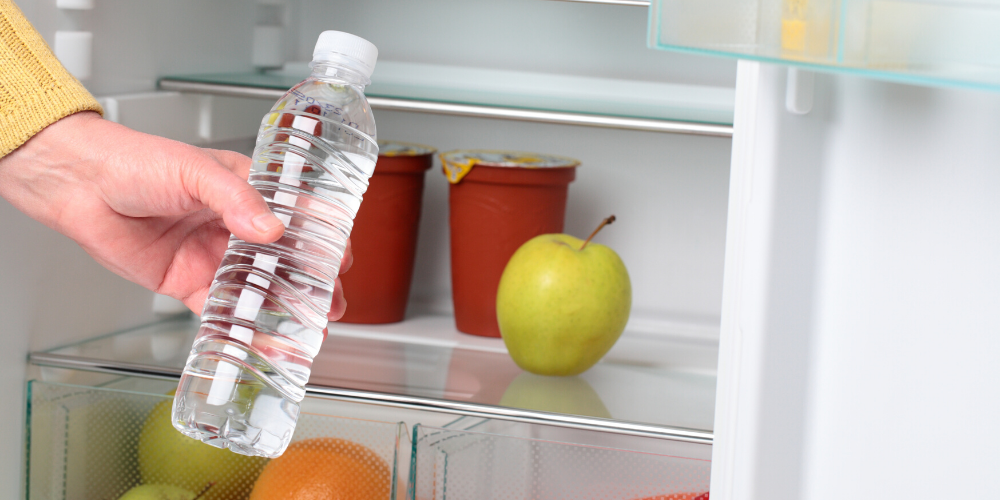
Chaos has ensued in your local town. You’ve decided to bug in and hold your ground. You’re relaxed because you know you have enough food and water to last at least a year because you were responsible enough to prep.
It’s dinner time and you go to get some water for your dehydrated food dinner out of your water storage barrels for the first time since you ran out of bottled water. You hesitate for a moment wondering if your water is still good.
Well, the good news is that water never “expires” and water never “goes bad”. It might get a little stale, but if you rotated it correctly, and preserved it correctly, you should have wonderful tasting water throughout the year.
The best way to tell if your water might have gotten contaminated is to check with your own senses. Does your water look cloudy? Does it smell bad or have a strange odor? When you took a small sip, does it taste funny?
These are signs that something might have gone wrong in the storage process. This is why it’s important to check and rotate your water every year.
Final Thoughts
I hope this post helped you gain some knowledge of what to expect when dealing with long term water storage. When in doubt, right before you are getting ready to drink the water from any of your containers, you can always purify your water by boiling it. It’s the last safety defense against waterborne pathogens.
